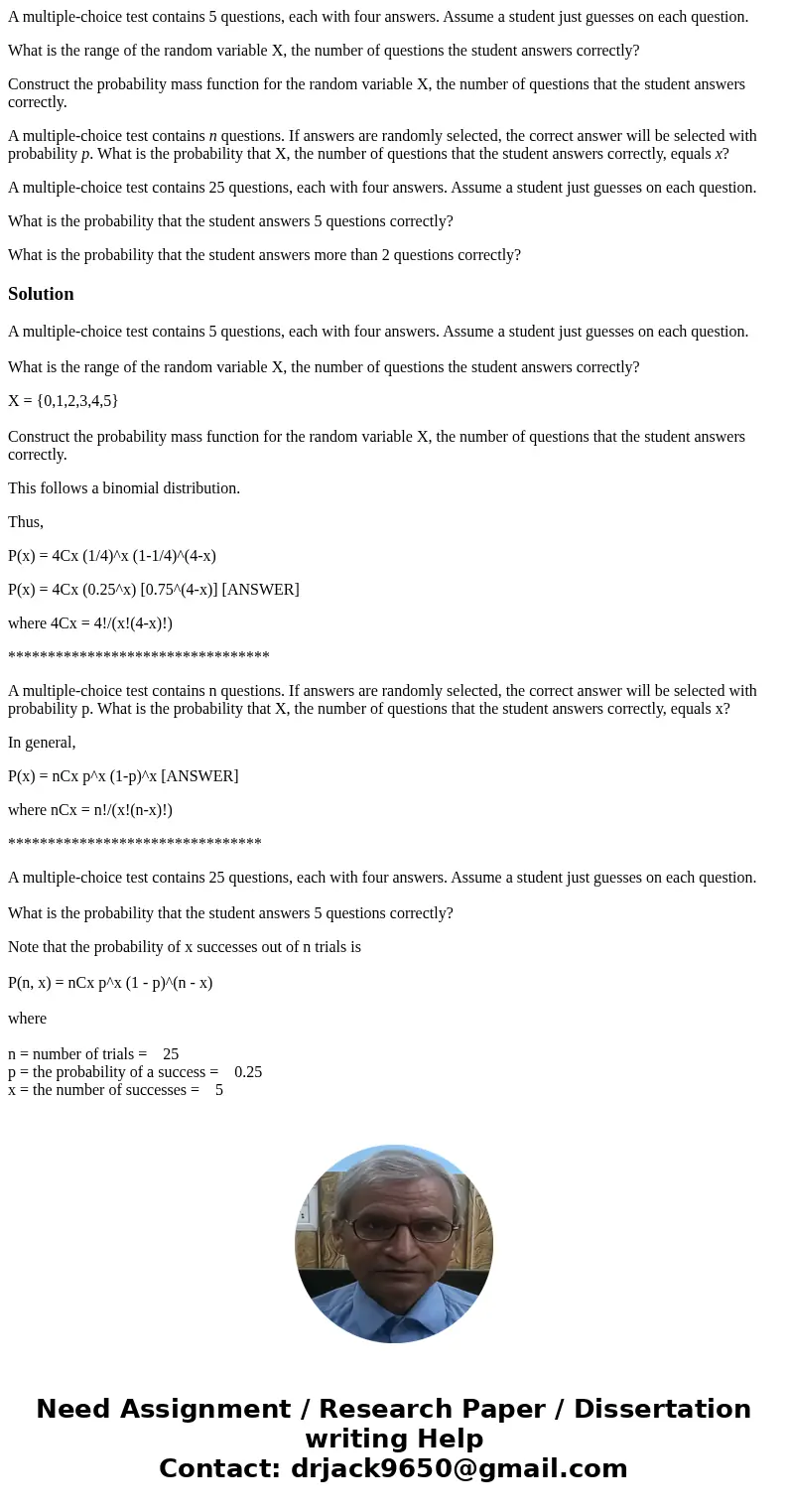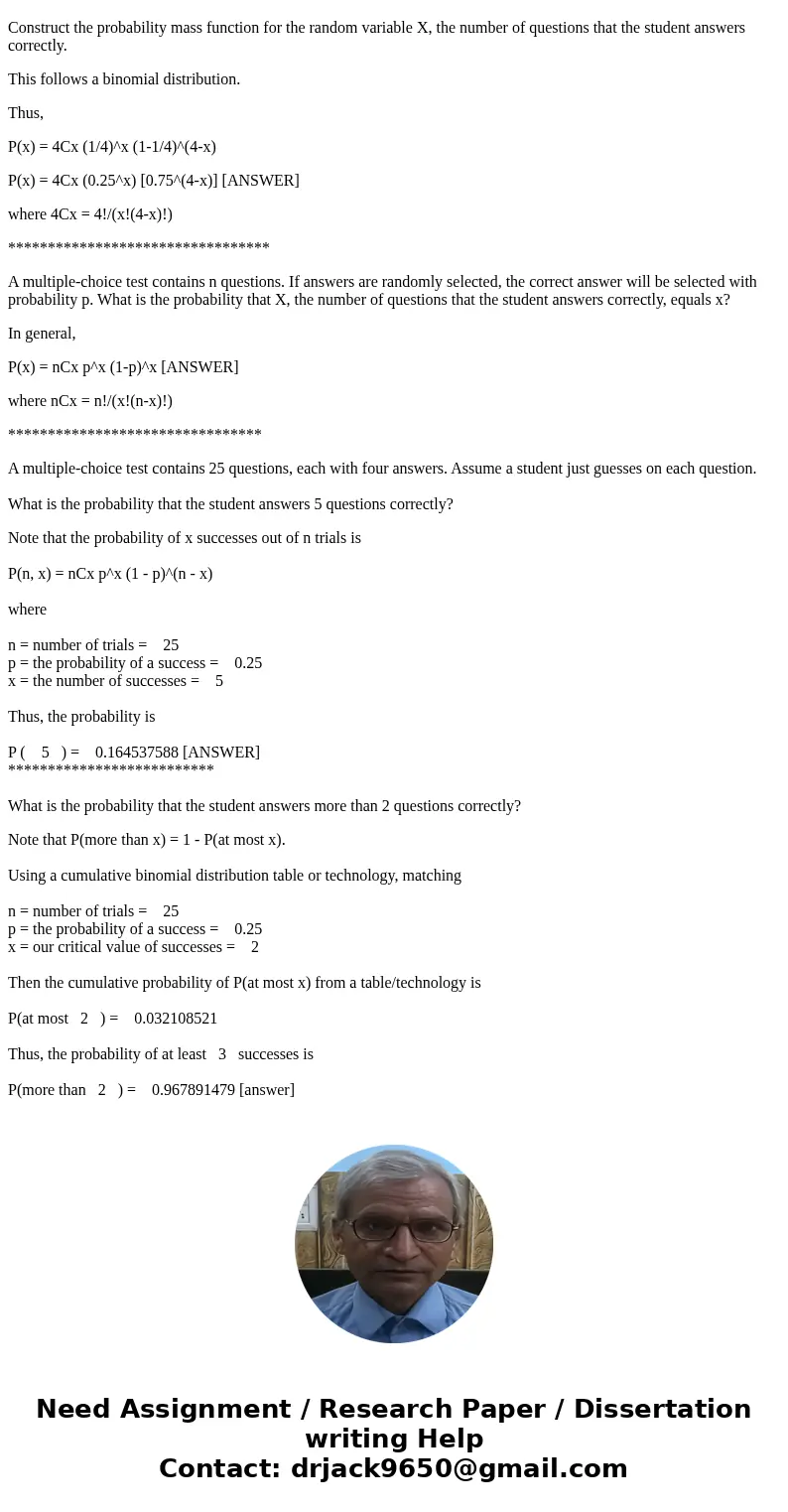A multiplechoice test contains 5 questions each with four an
A multiple-choice test contains 5 questions, each with four answers. Assume a student just guesses on each question.
What is the range of the random variable X, the number of questions the student answers correctly?
Construct the probability mass function for the random variable X, the number of questions that the student answers correctly.
A multiple-choice test contains n questions. If answers are randomly selected, the correct answer will be selected with probability p. What is the probability that X, the number of questions that the student answers correctly, equals x?
A multiple-choice test contains 25 questions, each with four answers. Assume a student just guesses on each question.
What is the probability that the student answers 5 questions correctly?
What is the probability that the student answers more than 2 questions correctly?
Solution
A multiple-choice test contains 5 questions, each with four answers. Assume a student just guesses on each question.
What is the range of the random variable X, the number of questions the student answers correctly?
X = {0,1,2,3,4,5}
Construct the probability mass function for the random variable X, the number of questions that the student answers correctly.
This follows a binomial distribution.
Thus,
P(x) = 4Cx (1/4)^x (1-1/4)^(4-x)
P(x) = 4Cx (0.25^x) [0.75^(4-x)] [ANSWER]
where 4Cx = 4!/(x!(4-x)!)
*********************************
A multiple-choice test contains n questions. If answers are randomly selected, the correct answer will be selected with probability p. What is the probability that X, the number of questions that the student answers correctly, equals x?
In general,
P(x) = nCx p^x (1-p)^x [ANSWER]
where nCx = n!/(x!(n-x)!)
********************************
A multiple-choice test contains 25 questions, each with four answers. Assume a student just guesses on each question.
What is the probability that the student answers 5 questions correctly?
Note that the probability of x successes out of n trials is
P(n, x) = nCx p^x (1 - p)^(n - x)
where
n = number of trials = 25
p = the probability of a success = 0.25
x = the number of successes = 5
Thus, the probability is
P ( 5 ) = 0.164537588 [ANSWER]
**************************
What is the probability that the student answers more than 2 questions correctly?
Note that P(more than x) = 1 - P(at most x).
Using a cumulative binomial distribution table or technology, matching
n = number of trials = 25
p = the probability of a success = 0.25
x = our critical value of successes = 2
Then the cumulative probability of P(at most x) from a table/technology is
P(at most 2 ) = 0.032108521
Thus, the probability of at least 3 successes is
P(more than 2 ) = 0.967891479 [answer]


 Homework Sourse
Homework Sourse